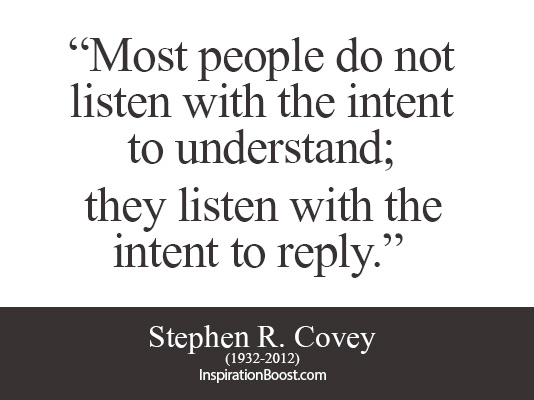Improve Productivity with Better Listening Skills
If you asked one hundred business owners for a list of the ten top ways to improve any business, listening would probably not make the list very high or very frequently. This is because most people think of “listening” as “hearing” and most people think they do it pretty well. The truth is, the majority of us could stand some improvement in our listening skills, and investing in listening skills comes with huge perks for your business.

Why You Want to Rock Great Listening Skills
In any business, you need the right tools in the toolbox to get the job done. While often dismissed or overlooked, communication is the most important tool in business success, and listening is the first and most important element of communication. Improving listening skills improves many aspects of your business including:
- Improved relationships with customers and coworkers
- Increased productivity
- Gaining meaningful feedback
- Avoidance of costly misunderstandings
- Shows concern for others and helps them feel valued, leading to increased customer loyalty
- Provides better insight into any issue, which in turn allows you to solve problems more efficiently
How to Improve your Listening Skills in 8 Easy Steps
Improving your listening skills is not as hard you might think. It does take some purposeful effort though because listening is not a passive activity as you might imagine.
- Listen with the intent of understanding. Most of us listen with the intent to reply to the listener. While we are formulating an answer, we miss 90% of what the person says! Make understanding the focus and it will change the way in which you listen.
- Minimize external distractions. External distractions not only make it difficult for you to follow what someone is saying, it also makes it difficult for the speaker to formulate thoughts.
 Use active listening techniques. Try repeating back to the person who is talking what you heard him or her say, this assures that you and your co-worker are on the same page.
Use active listening techniques. Try repeating back to the person who is talking what you heard him or her say, this assures that you and your co-worker are on the same page.- Pay attention to non-verbal communication. Non-verbal cues make up a huge portion of communication. Listening involves looking for those unspoken cues.
- Encourage open communication. Co-workers should be encouraged to voice their opinions about a project and express their ideas. Open communication is important for team building and increasing morale.
- Respectful of yourself and others. Be respectful to your co-workers by listening to their positions and responding in a professional manner. Respect yourself by staying in control of your emotions and using your best judgment when working towards conflict resolution with co-workers.
- Be willing to compromise. Compromise involves each party getting something that he or she wants so that everyone wins.
- Get to know your coworkers. Share personal interests during lunch, and find opportunities to spend time with co-workers outside of the office.
Building listening skills takes ongoing effort, but it is well worth your time. Once co-workers see your efforts, they are likely to follow your example which will help everyone be a more conscious communicator, and more productive worker!
